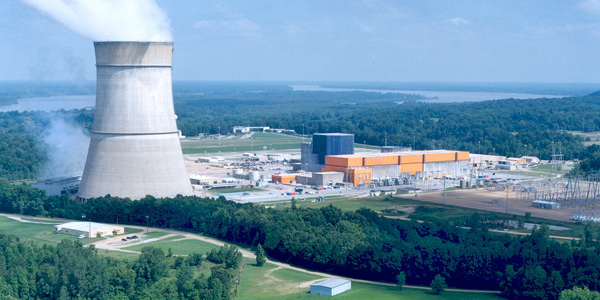By Amanda Durish Cook
FERC on Thursday rejected a pair of complaints from the Louisiana Public Service Commission related to a longtime dispute over how Entergy previously allocated production costs among its operating companies and arranged for pooled use of generation and transmission assets.
In EL01-88-019, FERC cited D.C. Circuit Court of Appeals precedent when it affirmed a previous ruling that declined to compel Entergy to issue refunds in an 18-year old complaint from the PSC over how Entergy handled its rough production cost equalization on its system from 2001 to 2003.
The commission said a refund mechanism would be more trouble than it’s worth to design and not appropriate given how much time has passed. It also noted that its “‘default’ position is to deny refunds in cases in which there is no net over-recovery by the utility.”
Both Entergy and the PSC asked FERC to revisit unresolved issues in the proceeding given the commission’s decision last year that the Federal Power Act prohibits refunds among electric companies of a registered holding company “to the extent that one or more of the electric companies making refunds cannot surcharge its customers or otherwise obtain retroactive cost recovery.”
The two-year refund period covered a time when Entergy’s System Agreement required that production costs among its half-dozen operating companies be “roughly equal,” but before implementation of its “bandwidth” solution, which ensured no operating company had production costs more than 11% above or below the system average.
In Thursday’s decision not to compel refunds, FERC cited the same three equity factors that guided the D.C. Circuit’s 2018 affirmation of the commission’s earlier decision not to issue refunds over Entergy’s inclusion of interruptible service in its rate design, including:
- a principle that “past decisions made in reliance on the prior cost allocation cannot be revisited”;
- the possibility of a disconnect between those who would pay surcharges and those who benefited from the previous cost allocation; and
- a “non-trivial risk” that a utility might under-recover refund costs because state regulators might block the utility from collecting surcharges from retail customers under rules against retroactive ratemaking.
“The commission has previously noted that refunds may not be appropriate because system operating decisions cannot be revisited and redone,” FERC said.
FERC provided an example: From 2001 to 2003, Entergy Arkansas had 11 wholesale customers that made up about 14% of its peak load. Today, the utility has just one wholesale customer — which was not a customer 18 years ago — that requires less than 0.001% of its peak load. The commission also said Entergy Arkansas “experienced significant changes to its retail customers since the refund effective period.”
Finally, FERC refused to hear new reasoning for refunds from the PSC, which cited the recent D.C. Circuit decision that found that Entergy’s System Agreement itself — not the Federal Power Act, as the PSC originally thought — was the basis for the “rough equalization” requirement. The state commission said the court’s distinction was another reason to revisit the refund question.
FERC was unpersuaded.
“We find that it is too late in this 17-year-old proceeding for the Louisiana commission to change its theory of the case and raise for the first time a new refund claim,” FERC said. “Because the Louisiana commission has had previous opportunities to raise this claim and has failed to do so until now, the Louisiana commission’s claim is untimely.”
No Opening of Entergy Settlement
In EL19-50, FERC also declined to rehear the PSC’s claim that Entergy Arkansas acted against the 1982 System Agreement when it had Entergy Services make off-system sales to third-party power marketers on its behalf from 2000 to 2005.
The PSC first claimed in 2009 that the sales violated the generation-sharing outlined in the System Agreement, denied customers the benefits of surplus power and was in violation of the “rough equalization of production costs” provision.
In that proceeding, the PSC focused its argument on Entergy Arkansas’ sales of output from the Grand Gulf Nuclear Station from January through September 2000, saying the sales violated the System Agreement’s reimbursement rules for off-system sales and harmed the other Entergy operating companies.
But FERC said Entergy’s 2015 settlement that terminated the System Agreement and resolved all disputes barred the PSC from raising its claims again. The commission pointed out that the PSC was a party to the settlement’s waiver and release provision, which covered Entergy Arkansas.
“We are not persuaded by the Louisiana commission’s repetition of this argument in the instant proceeding and find that, by entering into the 2015 settlement agreement, the Louisiana commission has waived its right to now raise the … claims in the complaint,” FERC said.





